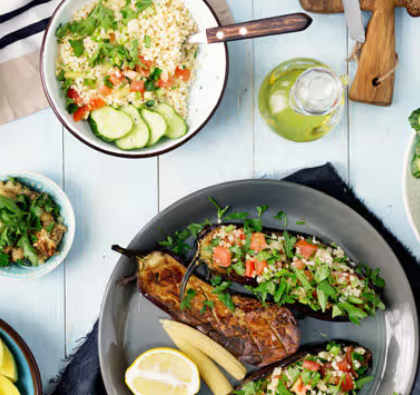
As we age, our dietary needs change. For men over 50, a healthy diet becomes even more essential to reduce the risk of chronic diseases, such as heart disease, diabetes, high blood pressure, and prostate problems. Maintaining a balanced diet not only supports overall well-being but can also help prevent premature aging and improve quality of life.
In this guide, we’ll explore the best diet for men over 50, focusing on essential nutrients, foods to include in your diet, and habits to adopt for a healthier lifestyle.
Nutritional Needs for Men Over 50
As men age, calorie and nutrient requirements shift due to factors like decreased activity levels, muscle mass loss, and the potential onset of age-related health issues. Below, we highlight some of the key nutritional considerations for men over 50.
Calorie Requirements
As you age, your calorie needs may decrease. This is mainly due to a drop in physical activity and muscle mass. Understanding how many calories your body requires can help you manage your weight and prevent excess fat accumulation. If you’re unsure about your calorie needs, consulting a dietitian can provide personalized guidance.
Macronutrient Balance
The right balance of macronutrients—protein, carbohydrates, and fats—is crucial for maintaining energy, muscle mass, and metabolism. Men over 50 might need to adjust their intake of these nutrients based on their activity levels and health conditions. For instance, a man with kidney disease may need to monitor his protein intake.
Essential Vitamins and Minerals
Certain vitamins and minerals become harder to absorb as we age, and some may need to be consumed in higher amounts. Key nutrients for men over 50 include:
- Vitamin B12 and Vitamin D: These are essential for bone health and cognitive function.
- Magnesium: Supports muscle and nerve function.
- Zinc: Important for immune health and wound healing.
Hydration
Dehydration can become more common with age, so it’s important to drink plenty of water. Aim for 6-8 glasses a day, and more if you’re active. Proper hydration supports concentration, kidney health, and energy levels.
Key Components of a Healthy Diet for Men Over 50
To maintain health and well-being, your diet should include a variety of foods rich in essential nutrients. Here are the key components of a healthy diet for men over 50:
Fruits
Fruits are packed with antioxidants that help combat the damage caused by free radicals, which can accelerate aging. Vitamins A and C, along with flavonoids in fruits like berries, also contribute to prostate health. Aim for at least two servings of fruit per day.
Vegetables
Vegetables are an excellent source of fiber, vitamins, and minerals. They can help with digestion, weight management, and reducing the risk of chronic diseases. Vegetables like tomatoes, rich in lycopene, have been linked to a lower risk of prostate cancer.
Whole Grains
Whole grains such as oats, quinoa, brown rice, and whole grain pasta are rich in fiber and B vitamins. They help regulate blood sugar, promote healthy digestion, and keep you feeling full for longer. Aim to include three servings of whole grains in your daily diet.
Protein
Protein is essential for maintaining lean muscle mass, metabolism, and immune function. As men age, they need more protein to prevent muscle loss. Good sources include lean meats, poultry, fish, eggs, soy products, beans, and legumes. The recommended protein intake for men over 50 is about 1.2-2 grams per kilogram of body weight.
Fats
Healthy fats, particularly omega-3 fatty acids, are vital for brain function, heart health, and inflammation control. Sources of omega-3s include oily fish like salmon, nuts, seeds, and olive oil. Men over 50 should aim to include healthy fats in each meal.
Fiber
Fiber is crucial for digestive health and regulating blood sugar levels. It also reduces the risk of colorectal cancer, which becomes more common with age. Foods high in fiber include fruits, vegetables, whole grains, legumes, and seeds. Aim for 25-30 grams of fiber per day.
Supplementation Needs for Men Over 50
While a balanced diet should provide most of the essential nutrients, men over 50 may benefit from certain supplements:
- Calcium: Supports bone health as calcium absorption decreases with age.
- Vitamin D: Helps with calcium absorption and supports immune function.
- Omega-3: Reduces inflammation and supports heart health.
- Magnesium: Supports muscle and nerve function.
- Vitamin B12: Important for cognitive function and red blood cell production.
Recommended Foods and Meal Planning for Men Over 50
To make healthy eating easier, focus on incorporating these foods into your meals:
- Quality Proteins: Fish, poultry, eggs, legumes, tofu, dairy.
- Whole Grains: Brown rice, quinoa, whole grain bread and pasta.
- Healthy Fats: Olive oil, avocado, nuts, seeds.
- Legumes: Chickpeas, lentils, beans.
- Herbs and Spices: Fresh herbs like basil, rosemary, and turmeric for added flavor and health benefits.
A sample meal plan for men over 50 could look like this:
- Breakfast: Oatmeal with walnuts, chia seeds, and a side of fruit.
- Lunch: Grilled chicken salad with spinach, tomatoes, avocado, and olive oil dressing.
- Dinner: Salmon with quinoa and steamed broccoli.
The Best and Worst Diets for Men Over 50
There are many diet options available, but some are more suitable for men over 50 than others. Here’s a quick overview:
- Mediterranean Diet: Emphasizes whole foods, healthy fats, and moderate portions. It’s linked to heart health, weight management, and reduced inflammation.
- Low Carb Diet: Can improve blood sugar control but may lead to fiber deficiencies.
- Plant-Based Diet: High in fiber and antioxidants, but may require supplementation for certain nutrients like B12 and omega-3.
- Intermittent Fasting: Can aid weight loss but may not be suitable for everyone.
The Mediterranean diet is often recommended for men over 50 because it promotes heart health and is sustainable over the long term.
Foods to Avoid for Men Over 50
Certain foods can negatively affect health as you age. These include:
- Red Meat: Limit to once a week due to its high saturated fat content.
- Processed Foods: High in sugars, salts, and unhealthy fats, which can contribute to high blood pressure and heart disease.
- Fried Foods: Contain unhealthy fats that can raise cholesterol levels.
- Alcohol: Limit alcohol consumption, as excessive drinking can increase the risk of cancer, liver disease, and other health problems.
How Can Exercise Help Men Over 50?
Exercise is crucial for maintaining health as you age. Regular physical activity can help improve blood pressure, reduce the risk of heart disease, boost metabolism, and support muscle mass. Strength training and endurance exercises like jogging, swimming, and cycling are particularly beneficial.
Lifestyle Tips for Healthy Men Over 50
In addition to eating well and exercising, here are some lifestyle tips for men over 50:
- Quit Smoking: Smoking accelerates aging and increases the risk of chronic diseases.
- Manage Stress: Chronic stress can lead to inflammation and other health issues.
- Improve Sleep Quality: Aim for 7-9 hours of sleep to support cognitive function and overall health.
- Attend Regular Health Checkups: Routine screenings can help catch potential health issues early.
Conclusion
A healthy diet is essential for men over 50 to maintain optimal health and reduce the risk of chronic diseases. By focusing on nutrient-dense foods, staying active, and managing stress, you can improve your well-being and quality of life as you age.










